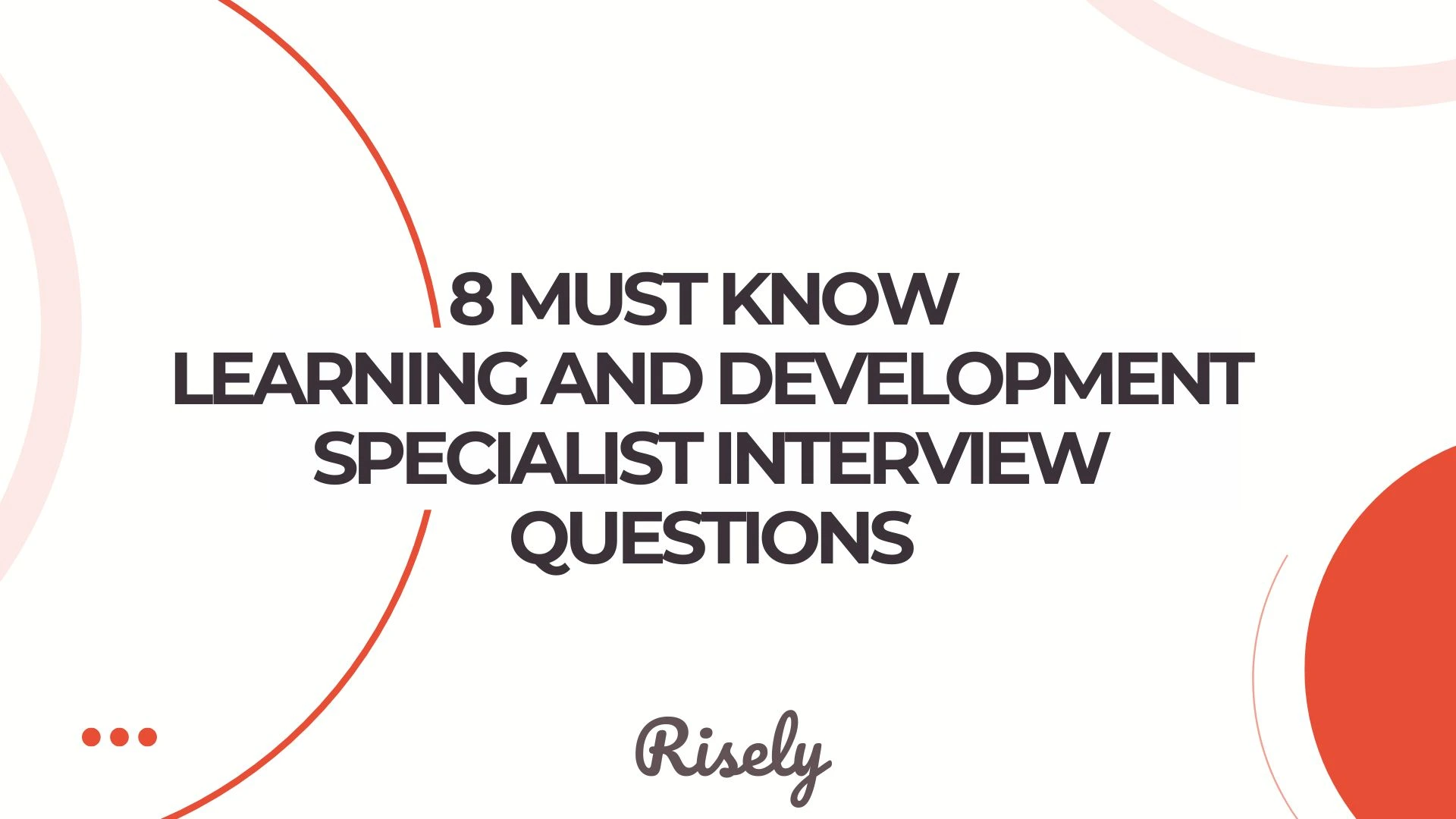How To Answer “Why Are You Leaving” In An Interview? With Examples
As you prepare to leave your job, you’ll undoubtedly be asked questions about why you’re leaving. There can be many reasons someone might want to leave their job, and employers must understand why employees depart to ensure a smooth transition. This blog provides tips on answering common interview questions, such as “why are you leaving?” and provides examples of how to answer them. By following these tips, you’ll be able to smoothly navigate the interview process and ensure that your reasons for departure are understood.- How To Answer “Why Are You Leaving” In An Interview? With Examples
- Other Related Blogs
Why Do Hiring Managers Ask “Why Are You Leaving?”
You’ll likely encounter this question somewhere during your interview. This question is intended to understand your reasons for leaving and to get a sense of your long-term career goals. You may be asked questions about your job performance and whether or not you had any conflicts or disagreements with your co-workers. The hiring managers could discuss your reasons for leaving at length. The hiring manager will attempt to envisage your long-term career goals through this question. The answer will help determine where you can fit in their growth trajectory. Moreover, your answer to this interview question helps the manager identify what you expect from a new role. It is also an insight into your motivations and personality. As it is obvious, the goal is to know why you left. The employer will determine whether your resignation was forced or submitted of your own accord. If it was a forced resignation, they might go deeper into the cause, such as misbehavior or underperformance. In that case, they might hesitate before getting you onboard. The interview is also meant to help the company in a few ways. When managers ask prospective employees “why are you leaving”, it lets them see why people are leaving other companies in the industry. They can focus on improvement if the reasons are present in the team. Read here to know how to answer another typical interview question – “Tell Us About Yourself.“How To Answer “Why Are You Leaving” In An Interview? With Examples
As you leave the organization, you might be anxious about answering this question. Answering this question can be pretty uncomfortable, so it is important to prepare in advance. First of all, be sure about why you are leaving the job. A few reasons can be:Looking For More At Work
You can explain that you are looking for more responsibility and learning opportunities than your current role can offer. Due to the lack of resources to explore and work on new things, you could not get the opportunities you were looking for. Here, you can also discuss your plans and what you want to do.My previous organization gave me many opportunities. However, I would like to go deeper in [this area]. I felt that I was not getting challenged enough in my previous role. I plan to learn more about XYZ and grow more in this role.
Switching Careers
Explaining a career switch can be tricky business. However, you can carefully demonstrate to the employer that you are seeking something different. It would be great if you could elaborate on what direction you are heading in. It is an excellent way to show that you are committed to doing meaningful work. On the other hand, if your decision seems haphazard, it can leave a bad impression.I have had a great experience working in the XYZ field so far. But I noticed I missed other aspects of this that I would like to work on. I want to use my skills in a different direction, and I feel that the vision of your organization would be helping in guiding me to do so.
Seeking Better Work-Life Balance
Taking care of personal well-being is as essential as climbing ladders in the world of careers. The post-pandemic era has rejuvenated the focus on maintaining a healthy work-life balance, and many employees are changing or adapting to achieve it. You can offer an honest explanation of your reasons and also put forth flexible requirements that you may have.Recently I have been noticing the need for more freedom in my working style. As a dedicated professional in the creative industry, I love to give my best at work with my team in balance. I love the idea of flexible work hours at your place that lets us excel at our own pace.
Dissatisfaction With Work
Dissatisfaction with what the team can offer in the workplace is a common reason for employees to leave their jobs. If this is your reason for leaving, you can focus on what was missing in your previous job and how you expect the new one to provide it. The reasons for dissatisfaction can be many – from no opportunities to micromanagement and toxicity. The things you mention here will give the hiring manager insights into your values.Lately, I realized that my previous job and aspirations were not in sync. I have learned a lot in my previous role, but the values and environment did not align very well with mine. I have seen the culture and values of your team, and I can see myself being at home.
Organization Downsizing
Many employees feel that their company is downsizing, prompting them to search for new work. You can provide an overview of the situation and how it has affected you. It will help your case if you can quantify what your skills and experience are worth in the current market. In addition, be prepared to talk about any other reasons that led you to leave, such as ineffective communication or poor working conditions.Due to several constraints, my company had to take a direction that did not suit my long-term goals. Therefore, I feel that I am prepared to take up the next challenge in my career path and move further toward my professional and personal goals.Your reason for leaving might be something else entirely, or it might be a mix of several. The key thing is to present the reason in a positive light.

Tips To Answer Interview Question – Why Are You Leaving
A few things that you need to keep in mind while answering this question are:Be Honest And Straight-Forward
It is important to be honest when answering the why are you leaving question. You should state the reasons for your departure from your last job and do so in a way that does not misrepresent or exaggerate anything. If you leave because of dissatisfaction with how the team is run, for example, it would be accurate to say that was part of the reason for leaving. However, if you leave to start working on new projects that are more interesting to you, it would likely make more sense to say as much. The key point is always to be truthful and complete in your explanation.Focus On The Future
When answering this question, it is important to show that you are looking forward to the future. For example, if you feel your last job was not a good fit for what you were hoping for in terms of career growth or development, be sure to mention that as well. You want the interviewer to understand why leaving was a difficult decision, and showcasing an outlook toward the future will help make your story more convincing. You can also add how you see yourself growing with the organization over the next few years. Your answer to why are you leaving needs a balance of past and future.Show Positive Attitude And Excitement For New Role
It is also important to showcase a positive attitude and excitement for the new role. It can be tempting to get defensive when you leave a job, but that will not favor your case. Instead, keep your tone upbeat and show that you are looking forward to starting fresh with the new organization. You should also mention any skills or experience that could help contribute value to the team or organization. If there is a significant improvement in conditions from your previous job, mention that.Other Interesting Reads
How Not To Answer “Why Are You Leaving” In An Interview?
Avoid Complaining And Criticizing The Previous Employer
Actively try to avoid negativity and focus on the positives when talking about why are you leaving. Complaining and criticizing your former employer will only make you look bad and will not help your case with the interviewer. The only thing it will do is present you as a complainer instead of a problem solver. Moreover, leaving the previous company on a bad note reflects poorly on your work ethic. You must maintain cordial relations with people even after significant disagreements.Do Not Give A General Answer
Some candidates give a general answer such as “I’m looking for an opportunity that is better suited to my skills” or “I want to try something new.” While these answers are generally okay, they can lack detail. This makes it difficult for the interviewer to understand your motivation and forces them to ask follow-up questions. Try giving more specific details about why you chose the organization you did and how your skills would be best utilized there. Additionally, explain any challenges or obstacles you faced while at the previous job and how that led you to consider a job change.
Do Not Focus Solely On Money
Many candidates focus on the money they will make when leaving their previous job. However, this is not the most important factor when it comes to deciding whether to leave your current position or not. Instead, consider what you feel are the benefits of working for one organization over another. Consider what improvements you hope to see in your career path under new management and how you would facilitate that by joining the team at the new organization. Also, highlight any skills or talents you believe would benefit the company. In short, do not make money your primary motivation when explaining why are you leaving.Conclusion
It can be tough to say goodbye to your job, but it’s even harder to answer the question, “why are you leaving?” In this blog, we provide you with some tips on how to answer this question effectively. By understanding the expectations of this question and following the tips provided, you’ll be able to leave your job with grace and dignity. Make sure to read through the blog until the end for a sample answer to the “why are you leaving” question. Thanks for reading!Get the most value out of exit conversations!
Download the free exit conversation toolkit for managers to handle exit conversations carefully.
Other Related Blogs
8 Must Know Learning and Development Specialist Interview Questions
Read the blog to get practical tips on the most common Learning and Development Specialist interview questions, including sample answers. It is crafted to give you the confidence to highlight…
How to Conduct a Skills Gap Analysis? Free Template
How to Conduct a Skills Gap Analysis? Free Template Did you know? Skills agility is critical to success in the era of AI. However, most large-scale companies are not ready…
Top 10 Behavioral Competency Based Interview Questions for Managers
Top 10 Behavioral Competency Based Interview Questions for Managers Success in the workplace is about more than just technical skills and expertise. It also requires mastering behavioral competencies that contribute…
7 Problem-Solving Interview Questions A Manager Could Ask To Hire Better
7 Problem-Solving Interview Questions A Manager Could Ask To Hire Better Managing is a very demanding job. As a manager, you have many tasks to perform. But by hiring the…


